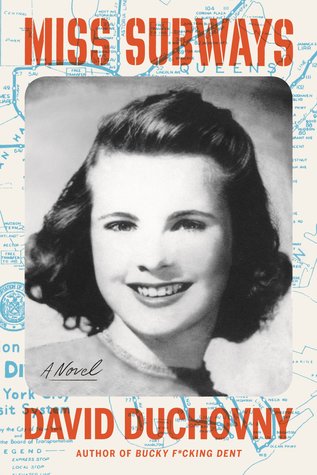 David Duchovny— Miss Subways: A Novel (2018, Farrar, Straus and Giroux, $26.00 U.S.) Purchase this book (Amazon)
David Duchovny— Miss Subways: A Novel (2018, Farrar, Straus and Giroux, $26.00 U.S.) Purchase this book (Amazon)

It’s easy to write off David Duchovny one of a number of celebrities who fancies him or herself as a novelist. However, the guy is no stranger to the world of fiction. His college education is steeped in English Literature and poetry, he received a terminal M.A. in the same field while working on a Ph.D. — but ditched completing the degree while working on his doctoral dissertation. Does that make him more qualified than his acting contemporaries to write long-form fiction? Not really. Indeed, it’s possible that having a deep knowledge of English Lit may somewhat hamper his ability to tell a good story. While that’s not entirely the case with his third novel, Miss Subways, Duchovny does take extended detours in his story with long expositions and pontifications on philosophical and religious questions — which does muddy the waters of a good yarn.
The story veers into the realm of science fiction with its lead character, Emer Gunnels, facing a choice: save the one she loves from a horrible death by sacrificing her relationship and never seeing her soul mate again, or watch him die. It’s kind of a Hobson’s Choice (i.e., taking what is available or nothing at all) as both will leave Emer alone and pining for love. Where does this strange choice come from? Well — and this is where the novel takes a strange turn — Emer is confronted in her apartment by a Celtic fairy (not a leprechaun) named Sid who shows her on his phone video of Emer’s boyfriend, Con, and the grisly fate that awaits him. The video shows what could be if Emer lets him die, and also shows what could be if she makes the choice to leave him and never cross paths again. She chooses a loveless existence where she and her boyfriend — known as Con, but whose real name is Cuchulain Constance — live apart in an alternate reality. The bulk of the novel is exploring the nature of love (as it transcends space-time), mythological creatures who live in our world, and a heaping helping of pop culture references that are very funny at times.
Duchovny is a competent writer who really shines when his sardonic, pop-culture laced quips take front and center. I’m not sure if people outside late Baby Boomers and Gen X’ers will find the references Duchovny weaves into the dialog funny, but they certainly made me chuckle at times. Alas, those moments were few and far between in the novel, and that’s a shame because Miss Subways had the potential to be a crazy and funny wild ride of a story. Instead, Duchovny’s detours into high-minded quotes and long disquisitions into the meaning of love and religion sacrificed a potentially compelling plot that made the novel more than a bit plodding.





Comments